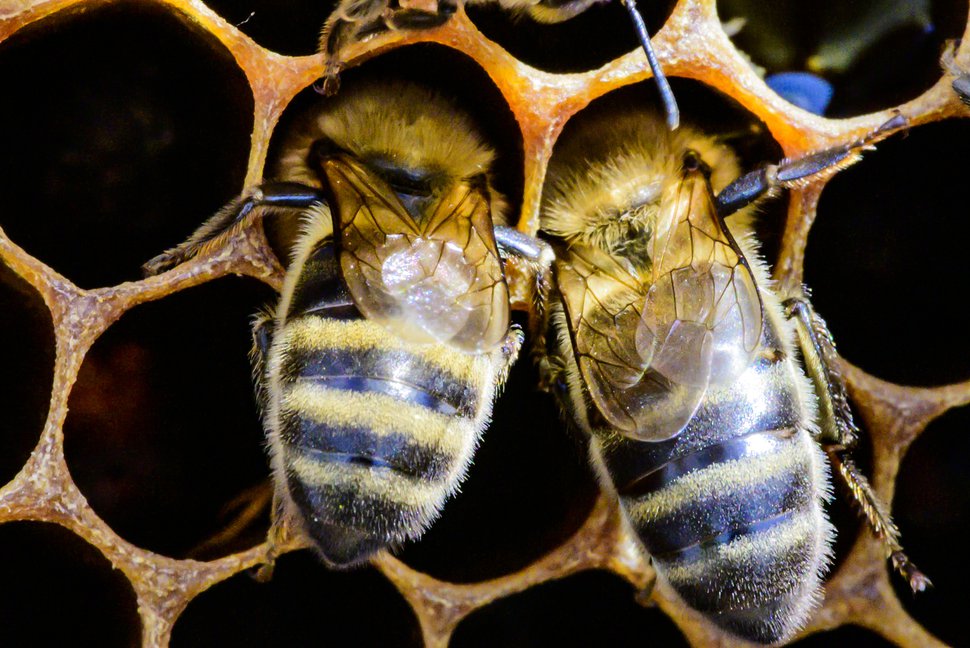Opinion
What the bees are telling us
Alongside butterflies, bats, beetles, some mammals and birds, bees are the tireless workers that sustain the crops and wild plants that feed us, protect biodiversity, and keep our agrifood systems resilient. When they thrive, ecosystems flourish. When they falter, so could we.
Pollinators enable the reproduction of 87 out of 115 of the world’s leading food crops — a figure that underscores their vital role in global food production. Nearly 90 percent of the world’s wild flowering plants (some 308,000 species) depend on these creatures for reproduction. From fruit to forage, they are essential to human diets and rural livelihoods. Around 1.4 billion people depend on pollination for jobs and income, especially smallholder farmers across Africa, Asia, and Latin America. When bees vanish, food becomes scarcer, nutritional levels plummet, and local economies falter. There is evidence that pollinator deficits could reduce the availability of nutrient-rich foods, leading to increased food insecurity and diet-related diseases, particularly in regions already vulnerable to malnutrition.
 Pollinators are increasingly under pressure. Land use changes, habitat loss, unsustainable agricultural practices, pests and diseases, and invasive species are contributing to alarming declines in their populations. These threats are serious — and in many parts of the world, they affect the very ecosystems that people depend on for their survival.
Pollinators are increasingly under pressure. Land use changes, habitat loss, unsustainable agricultural practices, pests and diseases, and invasive species are contributing to alarming declines in their populations. These threats are serious — and in many parts of the world, they affect the very ecosystems that people depend on for their survival.
As we work toward more climate-resilient agrifood systems, undergirded by cropping systems that produce more with less, bees and other pollinators are key allies. Diverse, pollinator-friendly farms are more adaptable to climate shocks and often yield better-quality crops with fewer external inputs. Without them, we cannot meet the challenge of feeding a growing global population in a changing climate and without damaging the environment.
The Food and Agriculture Organisation (FAO) is not standing still. Under the International Initiative for the Conservation and Sustainable Use of Pollinators and through the implementation of various global, regional and national projects, FAO is leading vital efforts to protect and harness pollinators. FAO’s Global Action on Pollination Services platform offers a one-stop hub for beekeepers, educators and policymakers — complete with glossaries, toolkits, and the latest science to inspire and inform.
From orchard rows in Rwanda to oasis valleys in Morocco, pollinator-friendly practices are already making a difference. In Tanzania, nearly 35,000 hectares of Miombo woodland are being restored while supporting sustainable beekeeping. In Chile, honey production is being scaled up as a climate-smart and income-boosting commodity. In Azerbaijan, forest management plans are being restructured to account for pollinator health. Across these regions and more, FAO and its partners are helping communities connect biodiversity protection with food security and economic opportunity.
This World Bee Day, the message is clear: pollinator protection helps preserve ecosystems, sustain rural livelihoods, and secure the future of food.
We all have a role to play. One can help by planting pollinator-friendly flowers, especially native species. One can avoid using harmful chemicals, particularly during flowering seasons when pollinators are most active, and support local beekeepers and buy honey from sustainable sources. One can also encourage schools and municipalities to create pollinator gardens and corridors, which provide safe and nourishing habitats for these essential creatures.
Though small in size, pollinators have an outsized impact. They are climate heroes, biodiversity champions and silent architects of our agrifood systems. Protecting them goes beyond saving species — it is fundamental to securing our shared future.
This World Bee Day, let’s do more than celebrate. Let’s act. Let’s invest in pollinator-friendly solutions, support community-led innovation, and ensure that nature’s most essential workers can keep doing their jobs — one flower, one farm, one future at a time.
_____________________________________________________________
Yurdi Yasmi is the Director of FAO’s Plant Production and Protection Division, leading global efforts to support Member Nations in transitioning to sustainable crop production systems.

